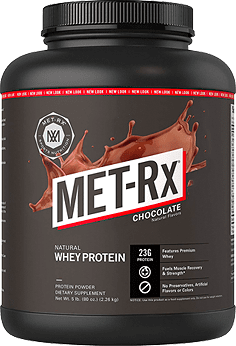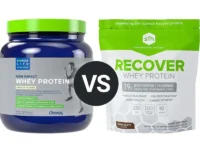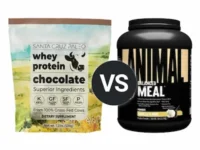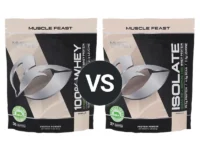Knowledge BaseYou're Questions Answered
Is protein powder natural?
Protein powder is a popular supplement used to support muscle growth, recovery, and general nutrition. Whether protein powder can be considered "natural" depends on its source, processing methods, and the specific ingredients it contains. Understanding what makes a protein powder natural or not can help you choose the right type for your dietary preferences and health goals.
What Does "Natural" Mean for Protein Powder?
The term “natural” can be subjective and may vary depending on regulations and individual interpretations. In the context of protein powder, "natural" generally refers to products that are made with minimal processing and contain ingredients that are sourced from whole foods without artificial additives, preservatives, or synthetic chemicals1.
Types of Protein Powders and Their Natural Status
1. Whey and Casein Protein
Whey and casein protein powders are derived from milk during the cheese-making process. These are considered natural in their unadulterated form. However, many commercial whey and casein protein powders contain artificial sweeteners, flavors, and thickeners, which make them less natural2. Look for products labeled as “natural” or “clean” to ensure fewer additives.
2. Plant-Based Protein Powders
Plant-based protein powders, such as those made from pea, rice, hemp, or soy, can also be natural if they are minimally processed and do not contain artificial ingredients. Organic versions are often available and may be a more natural option for those avoiding synthetic pesticides and additives3.
Factors That Affect the Naturalness of Protein Powder
- Processing Methods: The way protein powder is processed can affect how natural it is. Cold-pressed or minimally processed powders maintain more of their natural properties compared to highly refined versions.
- Ingredients List: Check for added sugars, artificial sweeteners, synthetic vitamins, and other non-natural additives. Protein powders labeled as “natural” typically avoid these ingredients.
- Certifications: Certifications such as “USDA Organic” or “Non-GMO Project Verified” can indicate that a protein powder is more natural and free from synthetic additives.
Choosing a Natural Protein Powder
When selecting a natural protein powder, consider these tips:
- Read the Ingredients: Look for protein powders with short, recognizable ingredient lists.
- Opt for Unflavored Versions: Unflavored protein powders are often more natural because they do not contain artificial flavors or sweeteners.
- Check for Organic Labels: Organic protein powders are made from ingredients that are grown without synthetic pesticides or fertilizers.
- Hoffman, J. R., & Falvo, M. J. (2004). Protein–which is best? Journal of Sports Science & Medicine, 3(3), 118-130.
- Smithers, G. W. (2008). Whey and whey proteins—from ‘gutter-to-gold’. International Dairy Journal, 18(7), 695-704.
- Messina, M., & Messina, V. (2010). The role of soy in vegetarian diets. Nutrients, 2(8), 855-888.

Your Answer
We are a participant in the Amazon Services LLC Associates Program, an affiliate advertising program designed to provide a means for us to earn fees by linking to Amazon.com and affiliated sites.






